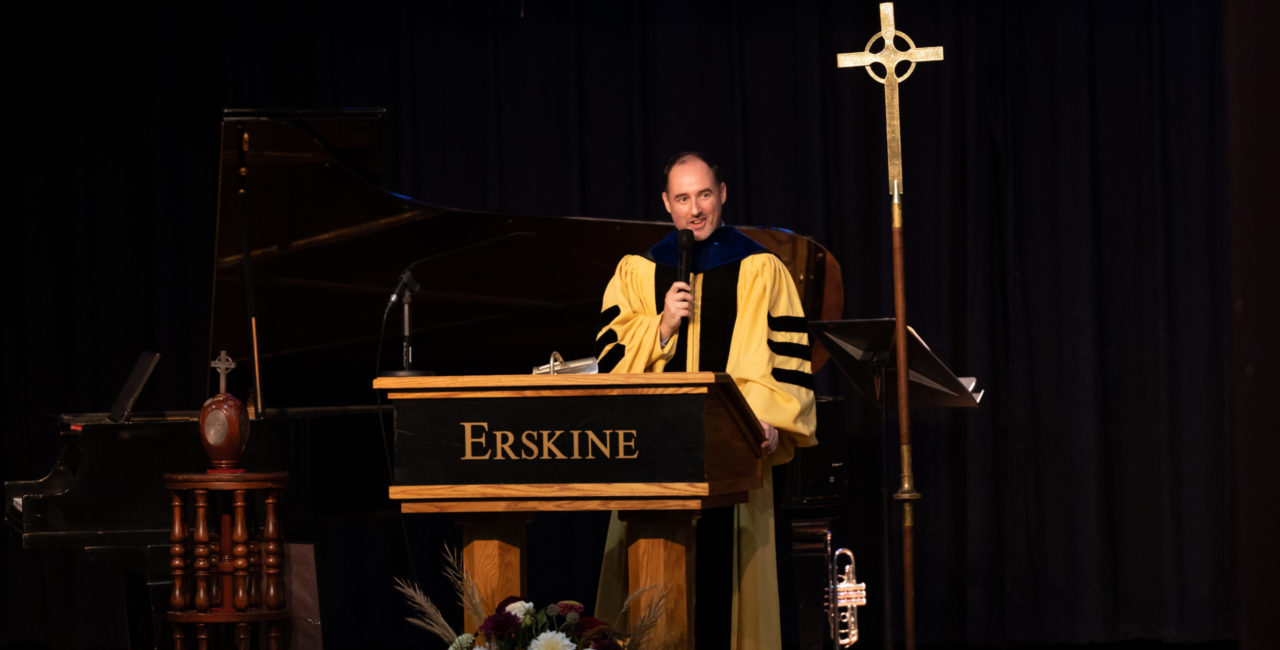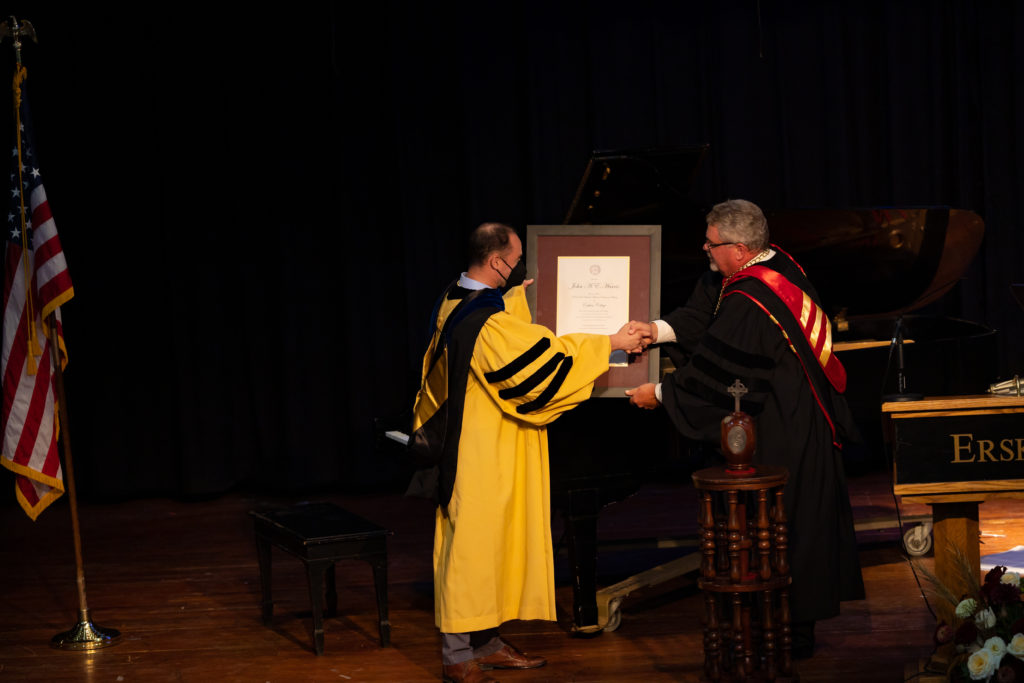
McDonald-Boswell Professor of History installed at opening convocation
Dr. John A.E. Harris was officially installed as McDonald-Boswell Assistant Professor of History at Erskine’s 2021 Formal Opening Convocation August 31 in Lesesne Auditorium.
In an address entitled “The Year Ahead—Some Advice from an American President,” Harris introduced his topic with humor, speaking about what professors do in their spare time. He characterized two members of the faculty as “cool professors” based on their summer travels, one trekking through the Sahara Desert and the other exploring the Galapagos Islands; one professor as “sort of cool” for spending much of the summer on the golf course; and himself as “not so cool” since he spent his break reading history books, including a biography of Ulysses S. Grant.
Harris sketched the background of the “American President” referenced in the title of his talk. A military leader and two-term president who rose to prominence during the Civil War, Grant served as commanding general of the United States Army from 1864 to 1869 and as president of the United States from 1869 to 1877. Harris urged students to “prioritize your health,” “look at the big picture,” and “find a support network,” linking each recommendation to Grant’s life and times.
The war in which Grant served as a commander claimed some 750,000 lives, many from disease. Citing such harmful 19th-century practices as digging latrines near sources of drinking water, Harris noted that germ theory was not well understood at the time. Diseases linked to contaminated water were rampant. Today, in the 21st century, health precautions are essential, especially during a pandemic. But “prioritizing your health” includes attention to mental health as well, Harris said. “Unplug [from electronic devices] for half an hour a day, especially before going to bed,” he told students. “Sleep eight hours a night—I’ve just begun doing that and it’s wonderful.”
Calling Grant “a great military strategist,” and alluding to his skilled leadership in a war fought on multiple fronts, Harris observed that considering the big picture played a significant role in the general’s success. Students may not be serving as leaders on the battlefield, but the college experience offers opportunities to gain a larger perspective. The usual round of attending classes and participating in athletic practice or music rehearsal is just the beginning. “Lift your heads up and think bigger thoughts,” Harris said. “What might God be doing with you? Think and ask those big questions.”
Harris said that Grant, who was an alcoholic, “barely touched alcohol” during the Civil War—despite great stress, separation from his family, and the easy availability of liquor, “especially for officers.” In a time when Americans consumed an estimated five gallons of alcohol per person per year, how did Grant manage to abstain? He had a trusted confidant on his staff “who knew Grant and his troubles,” Harris said. Committed to Grant, John Rawlins served as a sort of “booze blocker,” standing in the way of anyone who might try to offer alcohol to the general. Harris urged students to find friends like Rawlins. “Search out people who encourage you, people you can trust,” Harris said. “Find your network, your support group.”
The convocation was well attended by students, faculty, and staff members. The Rev. Joshua Chiles, chaplain, gave the invocation and benediction. Professor of Church History Dr. Dale Johnson offered a prayer for the 184th year of the Seminary and the 182nd year of the College. Dean of the Seminary Dr. Seth J. Nelson welcomed those in attendance. Interim President Dr. J. Thomas Hellams introduced new faculty members, spoke about the generosity of the families who established the McDonald-Boswell Professorship, and presented Harris with a framed commemorative certificate to mark the occasion.
Assistant Professor of Music Dr. Deborah Caldwell, trumpet, and Assistant Professor of Music Sharalyn Hicks, piano, provided music for the convocation.
More about the Harris can be found here and here.

